Please click here to read (or click the image below) and let me know what you think. It's a story I'm quite proud of, and I hope to do more with Marshal Ernie Farrar at some point in the future!
|
As I mentioned a few months ago, I sold a western story to Crimson Streets Magazine. Originally scheduled for July, it's been published in this week's issue.
Please click here to read (or click the image below) and let me know what you think. It's a story I'm quite proud of, and I hope to do more with Marshal Ernie Farrar at some point in the future!
0 Comments
I have a friend who, for years off and on, has tried to get me to read the works of Charles Willeford, a writer who got started in the peak years of the early 50s paperback original boom, but didn't find his fame as a writer, really, until the mid-80s (shortly before he passed, sadly). The stuff described to me didn't really seem like it was anything I was interested in, but, upon seeing a used copy of Black Lizard Books' edition of Willeford's first novel Pick-Up, I bought, read and absolutely hated it. I wrote Willeford off after that. That was a mistake. A couple of weeks ago, during a visit to my favorite used bookstore, another customer asked the clerk if they had any Willeford. The clerk said they only rarely got any and the books didn't stay on the shelf long when they did. "People love their Willeford," he said. I interrupted, related my experience with Willeford and asked what these two guys would recommend. They shared a look and the clerk said, "Yeah, Pick-Up isn't good," to which the other customer agreed. They talked back and forth, then agreed Willeford's best work was Cockfighter. Having only read two Willeford novels, I'm not prepared to swear Cockfighter is the best - but it is good. It's not the kind of novel I normally read nor at all what I expected. Willeford is widely considered a crime novelist, based on his Hoke Mosely, P.I., series but his early work--including Pick-Up--are not crime novels. Rather, they are more like blue-collar literary novels, for lack of a better term. While Pick-Up was slow, depressing and frankly boring in its description of the minutia of a character we know very little about's life, Cockfighter is swift-paced (despite covering a much greater period of time) and lacks a lot of details, while telling us quite a bit more about Frank Mansfield, the protagonist.
Frank, you see, is a professional cockfighter (raising and fighting roosters, of course) with a dream: to be the very best cockfighter in the world - by the standards of his chosen crowd, of course. To do this, he wants to win the coveted Cockfighter of the Year medal, handed out at the whim of the owner of the Southern Cockfighting Tournament. As a sacrifice to his own hard work and sense of honor while he works towards accomplishing his dream, Frank has sworn not to speak a word until he earns that medal. At the start of the novel, he hasn't spoken in two years and seven months. Essentially, Cockfighter is a southern-fried sports road-trip novel (loosely patterned after Homer's Odyssey, according to Willeford himself), jam-packed with a tremendous amount of technical information on the raising and care of gamecocks, the history and etiquette of the sport, and the brutality of the lives the men involved lead. They aren't necessarily bad people (some of them are), but the sense of simmering violence, unleashed through the birds they raise and train was actually kind of disturbing. At the same time, the novel has a kind of rough beauty, giving the reader insight into a world and its denizens most of us probably will never be exposed to (thankfully; I have zero interest in seeing a real cock-fight. I agree with the SPCA on this one wholeheartedly), and the personal meaning behind what they do. Frank Mansfield, and maybe Willeford himself, identifies people by the they hold and their relationships to them over and over and over again. A truck-driver who hates it is is a whiny slob because he wants a desk-job, but Omar Baradinsky, Frank's friend who was once an extremely successful New York City advertising executive who retired at the top of his field, is a sort of awe-inspiring figure because he not only succeeded at his original chosen field, he made a decisive change when he realized he was unhappy. Frank's brother Randall trains as a lawyer, but never applies himself to the profession, sporadically supporting himself by writing, so he is a failure in Frank's eyes. Throughout all of these people and professions, Frank knows exactly who he is: a cockfighter. To Frank, knowing who you are is one of the most important things there is. My major complaint with the novel is one of timing: originally published as a paperback original in 1962, much of the background information about characters harkens back to, for 1962, relatively recent times: World War II and the 1950s, and works just fine. However, the "definitive" edition of the novel, published in 1972 as a hardcover, was somewhat re-written by Willeford, but only sporadically takes into account the ten year time difference, leading to a few jarring instances that took me out of the story, such as the eight years Frank has been out of army, taking him back to the 50s, but the truck-driver having served in Vietnam. Overall, it was a good novel. It's not a crime novel as I expected, not a sports novel (although that's vaguely close to a good description), only sort-of a road-trip novel, but I enjoyed it and it was definitely a nice change of pace. Now, of course, I have to reconsider my opinion of Willeford and maybe try out some more of his work. Any recommendations? Fore note: these haven't truly been nightly in a long time, but I need something to call these, so enjoy some Nightly Noir (season II). Now! Unlike last week's PLEASE MURDER ME!, THE LADY IN THE LAKE is something I intentionally tracked down. Based on the Raymond Chandler novel of the same name, I wanted to see how the two compared. As friends, fans, readers know, I am a big fan of Chandler (although I am not without my criticisms, as well, of course). Anyway, let's see how Phillip Marlowe's fourth novel-length case translates to the silver screen. The fourth Marlowe novel and fifth film adapted from Chandler's Marlowe works, this one is a great novel that was turned into an, uh... interesting experiment by star/director Robert Montgomery. Montgomery was already a film star by this point, but this film was his directorial debut and he was clearly looking to make a big splash for himself right out of the gate. The property was certainly a winner: with a string of successful books and film adaptations to the character's name, Marlowe was a known commodity that audiences would have looked forward to the same way audiences today look forward to James Bond or Jason Bourne movies: they knew what they were getting and they liked that. Montgomery wanted to shake things up, though: he tried to capture the first-person perspective narration of the novels by shooting the film from Marlowe's POV. Except for a few places where he addresses the camera directly, we never see him and see only what he does. There's a lot of possibilities here, but they aren't really used. Frankly, it gets old quickly and begins to get annoying.
Additionally, the script diverges from the novel considerably, turning Marlowe into an aspiring writer trying to leave his private detective career behind and... they made it a Christmas movie. The writing thing doesn't affect the plot considerably, but it felt kind of shoehorned in. The Christmas thing is mostly cosmetic, too, although it's used as a plot-point eventually. So, is it a good movie? No. It's really not. I give Montgomery credit for trying something new and different, but he basically failed. I haven't done one of these in ages (and never here at the site, so far as I remember), but while looking for something else, I stumbled on this probably-forgotten noir gem, starring two of the greatest TV actors of all time (according to TV Guide's 1996 rankings), Angela Lansbury and Raymond Burr: 1956's Please Murder Me! The set-up is classic noir: it beings with Craig, a lawyer, as he records his confession for crimes he's semi-unwittingly helped a client get away with and how he expects she will murder him within the hour.
Long story short: Craig (Burr) is having an affair with Myra (Lansbury), his best friend Joe's wife. Unable to stand the guilt, and wanting to be with Myra free and clear, Craig tells Joe and asks him to divorce Myra. Joe doesn't refuse, but asks for time. While other doings occur, Joe confronts Myra and, behind a closed door (blocking the action), a gun is fired, leaving Joe dead. Myra claims self-defense, Craig bolsters this by telling the court (at Myra's murder trial) that he and Myra are lovers and he knows Joe well enough to know he might have gone crazy and tried to attack her. Myra is found not guilty. Later, Craig finds a letter Joe had addressed to him, but never got to send, stating Myra has been in love with an artist named Holt for years and Myra is using both Craig and Joe. After finding evidence of this, Craig confronts Myra and tells her he'll trick her into killing him, alleviating his guilt and so she'll go to prison the way she should have. In the end, he does trick her into killing him, more or less in the presence of the district attorney. The film has all the sweaty, manic guilt you'd expect of noir, as well as a few great shots. Is it good, though? No, not really. There's not much suspense in the story since you know Craig is going to die and who will do it. The journey from points A to B is decent and both Burr and Lansbury show off more acting chops than a B movie like this deserves. That's probably why both went on to greater things while this was director Peter Godfrey's final film. Recommended? Not really, unless you're a big Lansbury or Burr fan, but it is free to watch on the Internet Archive if you're interested. I wanted to take a moment to share a Kickstarter currently running for an anthology called DRABBLEDARK.
Edited by Eric Fomley, who accepted one of my stories for the book, DRABBLEDARK will feature 100 flash fiction horror stories. Currently, Eric is running a Kickstarter to help defray the publishing costs and the goals are quite reasonable. Check it out here, see what it's all about, and snag yourself a pre-order! |
Brandon BarrowsI'm Brandon and I write comic books, prose and poetry. I own dozens of clever and interesting t-shirts. Archives
July 2024
Categories
All
|
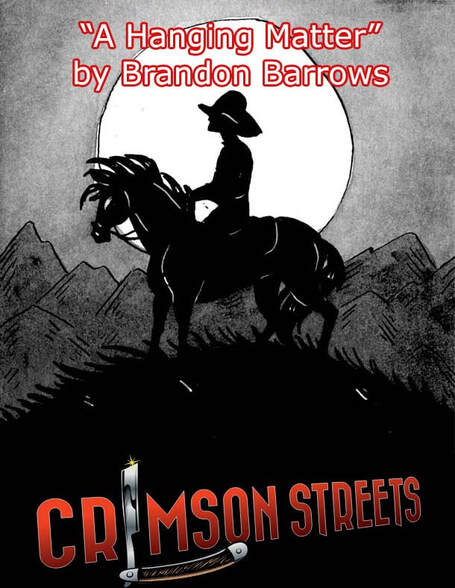
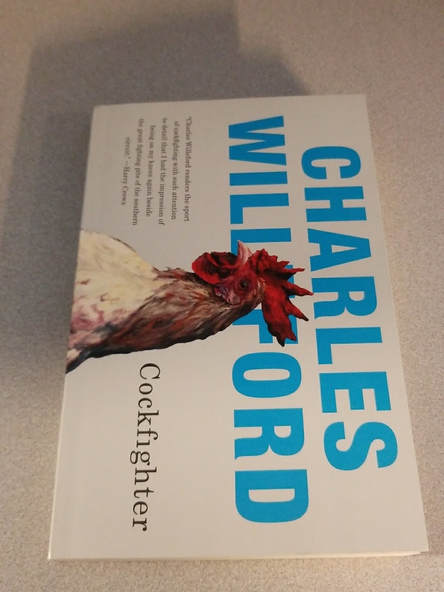
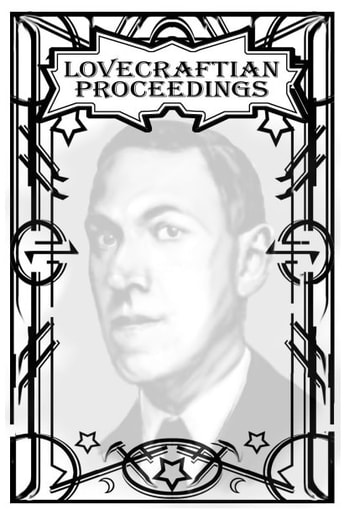
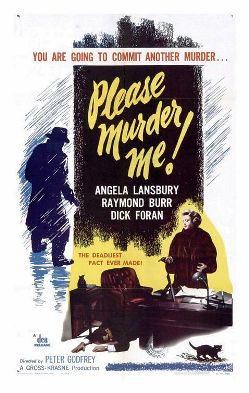
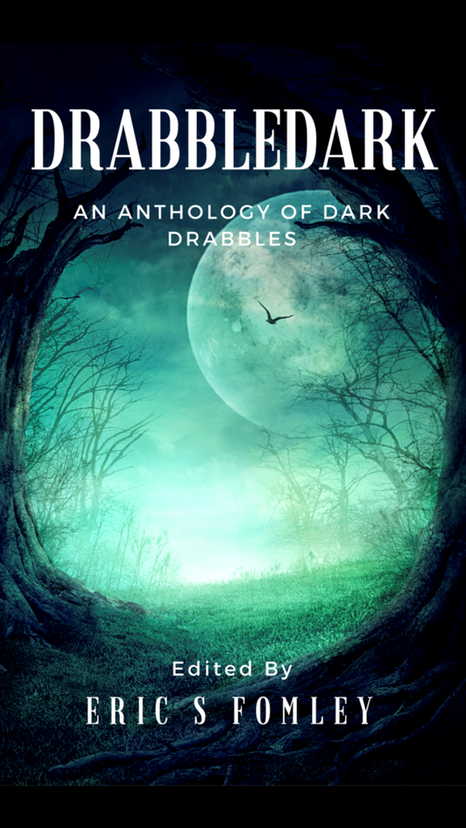

 RSS Feed
RSS Feed